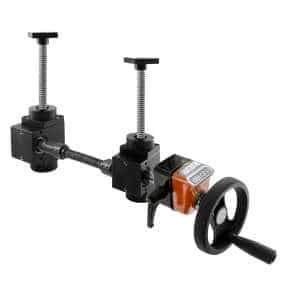Becoming a Diabetes Educator: Requirements and Career Path
News May 26, 2023

To become a diabetes educator, certain requirements and education training must be met. Firstly, a bachelor’s degree in a healthcare-related field is necessary, while a master’s degree in nursing, nutrition, or another healthcare field is preferred. Additionally, the National Certification Board for Diabetes Educators (NCBDE) certification exam must be completed after the required diabetes educator training program.
Apart from education, certain skills are essential for diabetes educators. Effective communication and interpersonal skills are necessary to educate, motivate, and support patients. Other important skills include critical thinking, problem-solving, and the ability to work well in a team environment.
Once the necessary education and certification have been obtained, diabetes educators can work in various settings, including hospitals, clinics, private practices, and even pharmaceutical companies or medical device manufacturers as educators or consultants. Advancement opportunities include becoming a clinical specialist or a manager in a healthcare facility.
Becoming a diabetes educator is a fulfilling career path that requires dedication and commitment to ongoing education and training. With the desire to help people manage their diabetes and the right qualifications and skills, a career in diabetes education can make a significant impact on people’s lives.
What is a Diabetes Educator?
Table of Contents
Diabetes educators are healthcare professionals who specialize in helping individuals with diabetes manage their condition. They help patients monitor their blood sugar levels, adjust their diets and exercise routines, and manage their medications effectively to avoid complications. The role of a diabetes educator is critical in the overall care of diabetes patients. They provide patients with the education and resources they need to live healthy and fulfilling lives while managing their condition.To become a diabetes educator, one must have a minimum of a bachelor’s degree in a healthcare-related field. Many diabetes educators also hold a master’s degree in nursing, nutrition, or another healthcare field. Additionally, they must complete the required diabetes educator training program and pass the certification exam offered by the National Certification Board for Diabetes Educators (NCBDE).Diabetes educators must possess excellent communication and interpersonal skills to educate, motivate, and support patients. They must also have knowledge of diabetes management and the latest treatment options. Other essential skills include critical thinking, problem-solving, and the ability to work well in a team environment.After obtaining the necessary education and certification, diabetes educators can work in various settings, including hospitals, clinics, and private practices. Some diabetes educators also work for pharmaceutical companies or medical device manufacturers as educators or consultants. Career advancement opportunities include becoming a clinical specialist or a manager in a healthcare facility.Becoming a diabetes educator requires dedication and commitment to ongoing education and training. However, if one has a passion for helping people manage their diabetes and is willing to put in the effort, it can be a rewarding career path that makes a significant impact on people’s lives.
Education and Training Requirements
Education and training requirements for becoming a diabetes educator are demanding, but well worth the effort. At a minimum, a bachelor’s degree in a healthcare-related field is required. Many diabetes educators also obtain a master’s degree in nursing, nutrition, or another healthcare field. These advanced degrees provide a comprehensive understanding of diabetes and its management.
In addition to obtaining a degree, diabetes educators must complete the required diabetes education and training program approved by the National Certification Board for Diabetes Educators (NCBDE). This program provides extensive training on the latest treatment options and strategies for managing diabetes. After completing the program, individuals must pass the certification exam offered by the NCBDE to become a Certified Diabetes Educator.
Diabetes educators must also stay up-to-date with the latest developments in diabetes management through continuing education courses. These courses consist of advanced training, workshops, and conferences that cover new research findings and emerging diabetes treatments. These ongoing educational efforts allow diabetes educators to provide the most current and effective treatment options to their patients.
Required Skills
Effective communication and interpersonal skills are essential for diabetes educators to educate, motivate, and support patients, as they must work closely with patients to develop successful diabetes management plans. Diabetes educators must be knowledgeable about the latest diabetes management options, including advances in technology and drug therapies.
In addition to communication skills and knowledge about diabetes management, critical thinking and problem-solving are also crucial skills for diabetes educators. They must be able to analyze and interpret patient data to develop customized treatment plans, and they must be able to adapt their approach as needed to ensure treatment success.
Diabetes educators must also excel at working in a team environment, collaborating with other healthcare professionals, including physicians, nurses, and dietitians. They must build strong relationships with patients, consistently providing guidance and support to help them achieve their diabetes management goals.
Career Path
Once you have obtained the necessary education and certification to become a diabetes educator, you have the opportunity to work in various healthcare settings. Diabetes educators are employed in hospitals, clinics, and private practices to help patients manage their diabetes. In addition, some diabetes educators work for pharmaceutical companies or medical device manufacturers as educators or consultants.
As a diabetes educator, there are also opportunities for career advancement. Experienced educators may become clinical specialists or managers in healthcare facilities. They may also choose to specialize in a particular field, such as pediatrics or geriatrics, to provide specialized care for patients with diabetes.
Overall, a career as a diabetes educator offers many opportunities for growth and continued learning. With a passion for helping others and a commitment to ongoing education, becoming a diabetes educator can be a rewarding and fulfilling career path.
Final Thoughts
Overall, becoming a diabetes educator is a challenging but fulfilling career choice that requires a lot of hard work and dedication. As a diabetes educator, you would be making a significant impact on people’s lives by helping them manage their condition and avoid complications.
It is essential to have a passion for helping others and a desire to continue learning and staying up-to-date on the latest advancements in diabetes management. With a minimum of a bachelor’s degree in a related field and additional training and certification, you will be equipped with the necessary skills and knowledge to succeed as a diabetes educator.
Whether you work in a hospital, clinic, or private practice, you will have the opportunity to work closely with patients and provide them with personalized education and support. Additionally, there are plenty of opportunities for career advancement and growth as a diabetes educator, including becoming a clinical specialist or manager in a healthcare facility.
Overall, if you are looking for a career that allows you to make a significant impact on people’s lives and have a passion for helping others, becoming a diabetes educator could be an excellent path for you to explore.



